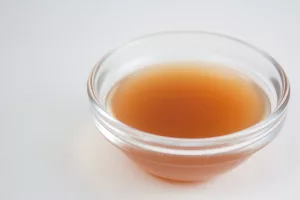Best Teas for Blood Pressure Regulation and Heart Health

When it comes to health, almost nothing is more important than the heart. After the brain, nothing comes close to the importance of the heart in keeping us alive. With each beat, the heart represents the engine that keeps us going. Teas, with their rich array of antioxidants and therapeutic compounds, present a delightful and beneficial avenue for heart health maintenance. Here, we delve into the heart-healthy benefits of various teas, each offering unique properties that contribute to cardiovascular wellness, from lowering blood pressure to enhancing blood vessel function.
Green Tea: The Catechin Powerhouse
Green tea is rich in antioxidants, particularly catechins, which have been shown to have a positive impact on lowering blood pressure levels and promoting heart health. Studies suggest that regular consumption of green tea can help reduce the risk of cardiovascular diseases, making it a great choice for those looking to maintain a healthy heart. The catechins in green tea work by inhibiting the enzyme that breaks down nitric oxide, a compound that helps blood vessels relax and improve blood flow.
Practical Tips:
- How to Brew: Use water just below boiling (about 80°C) and steep for 2-3 minutes to keep its delicate flavors intact.
- Daily Routine: Incorporate a cup of green tea into your morning ritual to start your day with a heart-healthy boost.
Case Study: A study conducted in Japan found that participants who consumed five or more cups of green tea daily had a 26% lower risk of heart disease death. This demonstrates green tea’s potential as a staple in heart-health management.
Additionally, green tea has been linked to improved blood vessel function and may help in reducing LDL cholesterol levels, thus further protecting heart health. The combination of catechins and other bioactive compounds in green tea works synergistically to provide a wide range of cardiovascular benefits, making it a popular choice for many health-conscious individuals.
Hibiscus Tea: Nature’s Blood Pressure Regulator
Hibiscus tea is known for its ability to lower blood pressure due to its high levels of anthocyanins and other antioxidants. These compounds help to relax blood vessels and improve blood flow, thus reducing the strain on the heart. Incorporating hibiscus tea into your daily routine may offer a natural way to regulate blood pressure and support overall cardiovascular health.
Practical Tips:
- How to Brew: Use boiling water and steep for 5-10 minutes for a full-bodied flavor and maximum health benefits.
- Flavor Enhancements: Consider adding a slice of lemon or a touch of honey for added flavor and health benefits.
Example: A clinical trial showed that consuming hibiscus tea twice daily significantly lowered systolic blood pressure in adults with mild hypertension. This makes hibiscus tea a natural and effective alternative to consider alongside other lifestyle changes.
In addition to its cardiovascular benefits, hibiscus tea is also known for its refreshing taste and vibrant color, making it a delightful beverage choice for those seeking a delicious and heart-healthy option. Regular consumption of hibiscus tea may not only benefit your heart but also contribute to your overall well-being due to its rich nutritional profile and medicinal properties.
Hawthorn Tea: The Herbal Heart Protector
Hawthorn tea has been used for centuries as a herbal remedy for various cardiovascular conditions, including high blood pressure. It contains flavonoids and other compounds that help dilate blood vessels, improve circulation, and strengthen the heart muscles. Regular consumption of hawthorn tea may offer benefits in supporting healthy blood pressure levels and promoting heart wellness.
Practical Tips:
- How to Brew: Use boiling water and steep for 10 minutes. For a stronger infusion, use dried hawthorn berries or flowers.
- Complementary Herbs: Blend with ginger or lavender for additional calming properties.
Case Study: Historical use of hawthorn in European medicine highlights its effectiveness in treating heart ailments. Modern studies support these traditional uses, showing improved heart function in patients with chronic heart failure after hawthorn supplementation.
Apart from its cardiovascular advantages, hawthorn tea is also known for its calming effects on the nervous system and its potential to reduce anxiety and stress levels, thereby contributing to overall heart health by addressing both physical and emotional well-being. Incorporating hawthorn tea into your daily routine can be a comforting and holistic approach to safeguarding your heart health.
Rooibos Tea: The Caffeine-Free Ally
Rooibos tea is caffeine-free and packed with polyphenols, which have been linked to improved heart health and blood pressure regulation. Its anti-inflammatory properties may help reduce the risk of heart diseases and support overall cardiovascular function. Including rooibos tea in your diet can be a soothing and beneficial addition to protect your heart.
Practical Tips:
- How to Brew: Steep in boiling water for 5-7 minutes to release its full flavor. It can be enjoyed hot or cold.
- Flavor Pairings: Pair with vanilla or almond milk for a creamy, caffeine-free latte.
Example: South African studies indicate that regular consumption of rooibos tea can significantly reduce oxidative stress, a key factor in the development of heart disease, further supporting its role in cardiovascular health.
Moreover, rooibos tea is known for its unique sweet and earthy flavor profile, making it a delicious alternative to traditional teas. The combination of polyphenols, antioxidants, and minerals in rooibos tea provides a comprehensive approach to heart health, offering not only cardiovascular advantages but also immune-boosting and anti-aging properties to support your overall well-being.
Oolong Tea: The Balanced Brew
Oolong tea is partially oxidized and contains both catechins and theaflavins, compounds that have been associated with cardiovascular benefits. Studies suggest that oolong tea may help lower blood pressure levels and reduce the risk of heart diseases by improving blood vessel function. Enjoying a cup of oolong tea regularly can be a flavorful way to promote heart health and manage blood pressure.
Practical Tips:
- How to Brew: Use water that’s around 85-90°C and steep for 3-5 minutes. Reuse the leaves for multiple infusions.
- Best Times to Drink: Ideal for mid-morning or afternoon to avoid interference with sleep due to its caffeine content.
Case Study: Research from China has shown that individuals who regularly drink oolong tea have lower cholesterol levels and a decreased risk of developing heart disease, emphasizing its potential as a heart-healthy beverage.
Additionally, oolong tea is known for its moderate caffeine content, providing a gentle energy boost without the potential negative effects of excessive caffeine consumption. The unique combination of catechins and theaflavins in oolong tea offers a holistic approach to cardiovascular wellness, making it a versatile and enjoyable beverage choice for individuals looking to enhance their heart health and overall vitality.
Black Tea: The Robust Heart Helper
Black tea, known for its robust flavor, is also rich in flavonoids, which are antioxidants that can improve heart health. Regular consumption of black tea has been associated with a reduced risk of stroke, lower blood pressure, and improved cholesterol levels. Its antioxidant properties help to reduce the oxidation of LDL cholesterol, preventing plaque formation in the arteries and thus reducing the risk of heart diseases.
Practical Tips:
- How to Brew: Steep in freshly boiled water for 3-5 minutes. Add milk or lemon based on preference.
- Caffeine Considerations: Moderate caffeine level makes it suitable for morning or early afternoon consumption.
Example: A large cohort study found that individuals who drank three or more cups of black tea daily had a significantly lower risk of heart attack, highlighting the potential of black tea in cardiovascular health promotion.
White Tea: The Gentle Antioxidant
White tea is the least processed of all teas, retaining a high level of antioxidants, particularly catechins, which can enhance cardiovascular health. It has been shown to improve artery function and maintain healthy blood pressure levels, contributing to overall heart health. The subtle and delicate flavor of white tea, coupled with its health benefits, makes it an excellent choice for those seeking to enjoy a heart-friendly beverage.
Practical Tips:
- How to Brew: Use water at 75-85°C and steep for 4-5 minutes to preserve its delicate taste.
- Pairings: Enjoy with light snacks such as fruit or nuts for a refreshing afternoon treat.
Case Study: Research has demonstrated that the antioxidants in white tea protect the heart by reducing oxidative stress and inflammation, key contributors to heart disease, making it a valuable part of a heart-healthy diet.
Pu-erh Tea: The Cholesterol Champion
Pu-erh tea, a fermented variety, is distinguished by its ability to help lower blood cholesterol levels, a key factor in heart disease prevention. It aids in the digestion of fats, promoting overall metabolic health, which is closely tied to cardiovascular wellness. Regularly sipping on pu-erh tea can be a strategic part of a heart-healthy diet, offering a unique taste experience alongside its cardiovascular benefits.
Practical Tips:
- How to Brew: Rinse leaves with hot water before steeping for 3-4 minutes. Adjust steeping time for a stronger flavor.
- When to Drink: Ideal post-meal to aid digestion and support metabolic processes.
Example: A study on the effects of pu-erh tea consumption found significant reductions in total cholesterol and LDL cholesterol levels among participants, reinforcing its role as a heart-health ally.
Matcha Tea: The Concentrated Green
Matcha, a powdered form of green tea, stands out for its high concentration of catechins, particularly EGCG (epigallocatechin gallate), which boasts potent heart-protective properties. By improving blood flow and lowering cholesterol and blood sugar levels, matcha contributes to a robust cardiovascular system. Its vibrant green color and distinct taste provide a unique way to enjoy the heart health benefits of tea.
Practical Tips:
- How to Prepare: Whisk 1-2 teaspoons of matcha powder in hot water (not boiling) until frothy. Enjoy as a traditional tea or in lattes.
- Incorporation Ideas: Add to smoothies or baking recipes for a nutritional boost.
Example: A clinical study highlighted that matcha’s high antioxidant content significantly improved cardiovascular markers in participants, showcasing its efficacy in heart health maintenance.
Additional Considerations for Heart-Healthy Tea Consumption
While incorporating these teas into your diet can offer numerous heart health benefits, it’s essential to consider other lifestyle factors that contribute to cardiovascular wellness. Here are some additional tips:
- Balanced Diet: Complement your tea consumption with a diet rich in fruits, vegetables, whole grains, and lean proteins to support overall heart health.
- Exercise Regularly: Physical activity enhances the heart’s efficiency and supports the beneficial effects of heart-healthy teas.
- Mindful Moderation: While tea offers many benefits, balance is key. Excessive consumption, particularly of caffeinated varieties, should be avoided.
Common Mistakes to Avoid:
- Over-sweetening: Adding excessive sugar or sweeteners can negate the health benefits of tea. Opt for natural flavor enhancers like lemon or ginger.
- Ignoring Brewing Instructions: Each tea has specific brewing guidelines. Oversteeping or using water that’s too hot can reduce health benefits and alter the taste.
Incorporating these teas into your daily routine, along with mindful lifestyle choices, can significantly contribute to heart health. Whether you prefer the robust flavors of black tea or the delicate notes of white tea, there’s a heart-healthy tea option to suit every palate. By making these teas a regular part of your life, you’re taking a delicious and proactive step towards maintaining a healthy heart.



